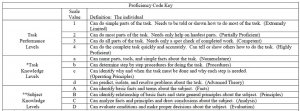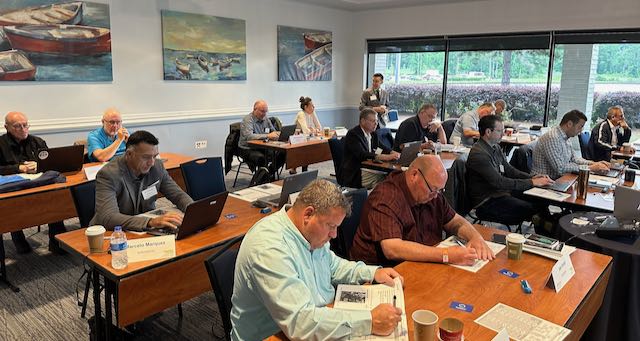Where did you get your mechanical aptitude? Did you break it or fix it?

Your Mechanical Aptitude
Where did you get your mechanical aptitude?
- You were born with a silver wrench in your mouth? No silver spoons for you.
- Did you have that friend say, “Grab this spark plug!” while he cranked the lawn mower?
- You tinkered with stuff before it broke?
- You tinkered with stuff after you broke it and before Mom and Dad got home?
- You had formal apprentice training on all things mechanical?
- You just hit it with a hammer until it started working? I learned that one from “Fonzie” on Happy Days. It worked on my check engine light.
- You never got a mechanical aptitude for stuff?
Mechanical aptitude tests measure your ability to understand and apply mechanical concepts and principles to solve problems.
Why The Interest in Mechanical Aptitude?
Why discuss mechanical aptitude on the TapRooT® Root Cause Analysis Blog? Simple…When Analyzing a Causal Factor like “Mechanic over-torqued the bolt 50 foot lbs,” the mechanic was not solving a problem. Instead, the mechanic created a future problem. The information below must be asked and answered concisely as it relates to the analysis of torquing a bolt…..
What are the required knowledge, skills, and abilities of the person performing the task?
Have a look at old military CFETP. What level of mechanical aptitude (proficiency) is required for the successful torquing of a bolt? Do your answers change when you think about time on the job? Do your answers change when you think about age or time in the workforce? Some people would say mechanical aptitude is common sense…..

The problem is that…
Many forget where their own mechanical aptitude journey started during troubleshooting and root cause analysis and assume everybody knows how to torque a bolt.
Many trust procedures to provide the required mechanical aptitude.
Many overtrust tools like pre-set torque wrenches when it comes to mistake-proofing. After all, a running torque is different from a static torque, but the pre-set torque wrench clicks regardless of which method is required.
Learn More About Mechanical Failures

Would you like to learn more about troubleshooting equipment problems and preventing mechanical failures? Or do you have folks that need training about equipment troubleshooting? Check out our upcoming 2-Day Equifactor® Troubleshooting and TapRooT® Root Cause Analysis Courses. See the dates and locations HERE. You won’t be disappointed. How do we know? Because we offer this course guarantee:
Attend this course, go back to work, and use what you have learned to troubleshoot equipment failures and find the root causes of reliability issues, operating issues, accidents, incidents, near-misses, or quality problems. If you don’t troubleshoot problems more efficiently and find root causes that you previously would have overlooked, and if you and your management don’t agree that the corrective actions that you recommend are much more effective, just return your course materials/software, and we will refund the entire course fee.
If you have mechanical aptitude lessons learned the hard way, share them in the comment section below.




Hi
Completely agree on this. As a marine engineer, dealing with different crew; certain actions like not using a adjustable wrench for slackening of bolts has to be reiterated time and again. Infact I would have had to reiterate it at least to 2 people every year over a period of 20 years in the industry and reading this article does reinforce that ” mechanical aptitude ” varies in different persons.
used to think it was a training issue; but it could well be that it was an issue with the mechanical aptitude .